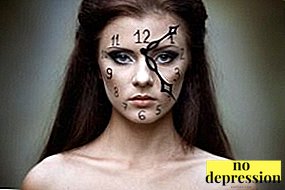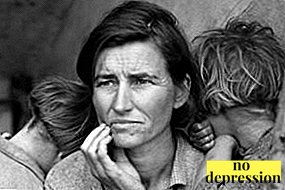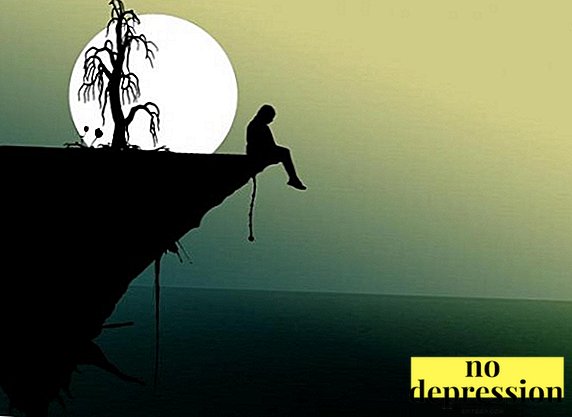In psychology, there is the concept of a person’s social age.
Define this indicator possible by several criteria.
What it is?

Concept implies the level of compliance of a person's achievements in society with average indicators among his peers.
So, every stage of a person’s life match certain eventswhich traditionally occur at this stage.
There is a period in which the overwhelming majority of people lead families, and there is a temporary life span in which many grandchildren appear.
Specific timeframes limited time to school, university entrance, the beginning of professional activities, retirement. There are many similar examples.
If a person fits into existing statistical boundaries, his social age corresponds to the generally accepted norm.
In this case, we can say that the individual’s “life schedule” is combined with the “life schedules” of his peers.
Departure from the norm can be observed in two directions:
- Advance. When ahead, certain social indicators are achieved before the generally accepted deadlines. For example, when a minor girl becomes a mother or a child with a high level of intelligence ends school as an external student. In such cases, the social age becomes greater than the real one on the passport.
- Lag. In case of lag, a person goes through the process of socialization more slowly than his peers. For example, when after forty only the first child is born or after thirty the vocational education is still not completed. When lagging behind the overwhelming majority, a violation of social adaptation often occurs, the appearance of certain difficulties.

What does it depend on?
Indicator emerging in the process of human socialization in society. Under the influence of various factors, a person goes through certain paths of development, performs social roles and solves the tasks set for him.
Despite the fact that all members of modern society are put in about the same conditions, the individuality of each individual person and the characteristics of the environment leaves an imprint on his life.
Social age depends on the following conditions:
- Heredity. Genes play a huge role in the formation of personality and have an impact on a person’s entire life.
 Children do not inherit specific abilities from their parents, but by birth receive certain inclinations that may manifest in the future. Parents with a high level of intellectual development are likely to grow up the same talented child who can achieve heights in education, in professional activities before their peers.
Children do not inherit specific abilities from their parents, but by birth receive certain inclinations that may manifest in the future. Parents with a high level of intellectual development are likely to grow up the same talented child who can achieve heights in education, in professional activities before their peers. - IQ. This indicator may not affect the time of marriage, childbirth and other aspects of daily life, but may be important in building a career. Smart people are more likely to achieve some success in the profession than their less developed peers. But it should be borne in mind that in addition to intelligence, general conditions of life and character traits are also of great importance.
A clever but passive and non-initiative person may end up lagging behind the majority.
- Parenting in the family. The family is the primary, primary institution of socialization. It is in the family that the basic values and beliefs are laid.
 Children often copy their parents' behavior patterns. For example, a daughter who has entered into an early marriage also early, in the future, tie themselves to marriage. Asocial parents are likely to have the same antisocial children, etc.
Children often copy their parents' behavior patterns. For example, a daughter who has entered into an early marriage also early, in the future, tie themselves to marriage. Asocial parents are likely to have the same antisocial children, etc. - Habitat. The level of human achievement is largely determined by the environment in which his personality is formed. So, of two peers, one may live in a prosperous family and receive a quality education, and the other grow up in a family of alcoholics and not go to school.
The probability of reaching the average professional level and material well-being of a first child by a certain interval is many times higher than that of the second.
- Material conditions. Financial opportunities affect almost all aspects of human life. Get an education, create a family, buy property, raise children and much more can be done only if there are certain material benefits.
- Traits. Character has a key influence on what social success an individual will achieve at each age. Even with the most unfavorable starting conditions of life, a purposeful, confident and developed person is able not only to reach the average level, but also to be ahead of the curve. At the same time, his passive, infantile or lazy peer may be among the laggards even under the most favorable conditions.
- Influence of others. Society has a huge impact on a person’s life. Public opinion, stereotypes, norms and principles that exist in society as a whole and in the social groups of the individual in particular, largely shape his social age.
Often, under the influence of the inner circle and stereotypes in society, people marry, have children, make a career in a prestigious area, etc.

Relationship with the psychological and biological age

Biological age - The state of the body, characteristic of the corresponding chronological stage of human existence.
Often, the data that is shown in a person’s passport is completely inconsistent with his state of health, existing diseases and physical self-awareness.
Psychological age - the level of mental development, attitude to yourself, to others and to life.
It does not depend on passport data, but on indicators of the development of intelligence. It can also be called the intellectual level.
Depending on your psychological state a person can adapt to different conditions of life in society, achieve goals, perceive the surrounding reality, show behavior motifs, etc.
In modern conditions a common problem is the lag of the psychological age of people from the real level.

Infantilism the younger generation is provoked by an excess of idleness and a consumer attitude towards life.
Social indicator combines both of the above criteria.
Advance or retarded biological, psychological development have a direct impact on the socialization process.
How to define it?
People often wonder how to determine their social age. To do this, evaluate the following indicators of your life:
- moral and legal assessment (the degree of assimilation of the existing rules and norms of behavior in society, the ability to behave according to the situation, knowledge of their rights and obligations, etc.);
- assessment social status (position that a person occupies in society due to his professional achievements and involvement in various social groups);
- definition of socio-demographic role (state of marriage, childbirth, retirement, etc.)
- professional performance appraisal (degree of professionalism, career success).

Results compared to average.
You can also refer to specialized tests. Having answered a number of questions, it is easy to get the necessary information.
The information obtained will help assess level of own achievements and see possible problems.
Thus, each person has a social age, and he may not correspond to real passport data. If you wish, you can try to determine this indicator yourself.

 Children do not inherit specific abilities from their parents, but by birth receive certain inclinations that may manifest in the future. Parents with a high level of intellectual development are likely to grow up the same talented child who can achieve heights in education, in professional activities before their peers.
Children do not inherit specific abilities from their parents, but by birth receive certain inclinations that may manifest in the future. Parents with a high level of intellectual development are likely to grow up the same talented child who can achieve heights in education, in professional activities before their peers. Children often copy their parents' behavior patterns. For example, a daughter who has entered into an early marriage also early, in the future, tie themselves to marriage. Asocial parents are likely to have the same antisocial children, etc.
Children often copy their parents' behavior patterns. For example, a daughter who has entered into an early marriage also early, in the future, tie themselves to marriage. Asocial parents are likely to have the same antisocial children, etc.

